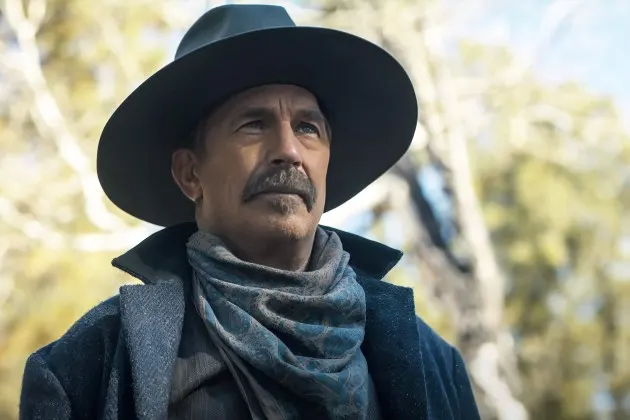Kevin Costner predicted that excessive pressure on Horizon’s opening box office weekend would lead to disappointment. Learn what factors caused the film’s flop.
Kevin Costner expected his epic film Horizon would flop at the box office. Putting too much emphasis on a movie’s first weekend ticket sales sets it up for failure.
Kevin Costner Foresaw That Horizon Would Flop Due to Excessive Pressure on Opening Box Office Weekend
Filmmaker Kevin Costner’s ambitious new Western epic Horizon has sadly flopped at the box office, earning only $11 million on its opening weekend against its $100+ million budget. Though certainly disappointed, Costner was not surprised by these results. In the lead-up to Horizon’s release, he expressed concerns that putting “so much pressure” on a film’s opening weekend gross sets unrealistic expectations and often leads to disappointment.
Understanding the Film Industry’s Focus on Opening Weekends
The film industry overly fixates on a movie’s opening weekend, using it as the prime indicator of its financial success and cultural impact. Studios pour immense resources into heavily marketing films to maximize first weekend ticket sales, aiming for impressive debut box office numbers. However, this narrow focus often distorts perceptions.
While strong openings suggest that marketing successfully attracted initial public interest, many excellent movies start slower. Quality films build devoted audiences and sustained revenue through positive reviews and word-of-mouth over time. As Costner stated, relentlessly judging a film’s entire merits based on its first few days sets the stage for letdown. Audiences are complex and unpredictable. No single metric encapsulates a movie’s lasting worth.
Kevin Costner’s Hopes and Predictions for Horizon
An Oscar-winner for Dances with Wolves, Costner is renowned for directing and starring in ambitious, visually stunning historical epics. Horizon again planted him at the helm of a sprawling Western centered on expansive vistas instead of CGI spectacle. Costner described the project’s development:
“I’ve lived with movies and what happens to them on their opening weekend. If we put so much pressure on that, we’re bound to be disappointed. I’m really happy that Horizon looks like what it’s supposed to look like, and that’s the way it’ll look the rest of its life. And that’s really important to me in this process.”
While hoping Horizon would attract a large audience to launch a franchise, Costner prioritized faithfully executing his vision over opening weekend mania. He focused on crafting images echoing Hollywood’s golden age. Remaining creatively fulfilled mattered more than box office validation.
Marketing Challenges for Epic Westerns
Securing distribution and promotion for lengthy, mature Westerns poses hurdles today. Major studios doubt their potential profitability. Costner self-financed Horizon, personally investing over $38 million into its $100+ million production. This allowed creative freedom but meant all marketing costs also came out of his pocket.
The film’s complex storyline and two and a half hour runtime likely made packaging it for mass appeal difficult. Horizon introduces numerous characters across multiple locales in the first chapter of a proposed four-film saga. Successfully hooking audiences on such an ambitious vision requires innovative promotional strategies. Costner’s faith in the material’s intrinsic substance seemed boundless. But effectively conveying a dense epic’s appeal using conventional advertising techniques proved trying.
Critical Reviews Largely Negative
Reviews likely further dampened enthusiasm. Horizon drew mostly negative appraisals from prominent critics. Many praised its impressive cinematography yet felt the sprawling narrative remained disjointed. Horizon transports viewers across the expanse of post-Civil War America. But some argued this vast canvas left little room for emotional intimacy with individuals.
Respected critics like Peter Debruge of Variety noted:
“There’s no question that Costner has vision…the problem is that it’s virtually impossible to capture on camera, resulting in an unbalanced array of storylines that don’t achieve the epic quality such a sprawling period Western demands.”
This middling critical consensus surely contributed to general disinterest beyond Costner’s core fanbase.
Fierce Competition from Other Films
Horizon’s launch aligned with multiple high-profile franchise releases targeting similar mature audiences. Returning series like Transformers 7 and Fast and Furious 11 dominated screens and discussion. Even smaller dramas with Oscar-buzz like The Banshees of Inisherin generated enthusiasm through rave early reviews.
Against this backdrop, Horizon likely got lost in the shuffle. Genre films reliant on practical sets and real wilderness vistas struggle standing out beside flashy CGI spectacles boasting far larger promotions budgets. Costner’s gamble placing his personal fortune behind old-fashioned filmmaking sadly failed to overcome these financial realities.
The Financial Implications of a Big-Budget Flop
With Horizon grossing only $11 million on its debut weekend, against reported production and marketing costs hovering near $150 million, the film seems destined to generate substantial losses rather than sparking a profitable series.
Impact on Investors
Horizon’s failure spells catastrophe for those who invested in the project, chief among them Costner himself. After spending $38 million of his own wealth chasing this passion project, its bombing jeopardizes his entire personal fortune. Costner gambled heavily on himself and lost hugely.
Long-Term Ramifications
In the short-term, studios absorbing losses of this scale inevitably make less risky choices in the future. Ambitious auteur visions like Horizon already struggle for funding in today’s franchise-dominated ecosystem. Following such extreme financial disaster, studios doubling down on expensive stars or filmmakers with unchecked creative license seems unlikely.
More formulaic CGI-heavy spectacles and interconnected universes providing “safer” returns on investment will continue dominating Hollywood’s release slates. Costner’s crashing dream of launching an adult Western saga looks devastating for all still striving to make classically structured big-screen epics centered on practical production design instead of green screens.
Lessons Learned About Marketing Films
Horizon’s rejection spotlights the immense difficulty involved in successfully introducing modern moviegoers to complex genres like the Western. Launching a new self-financed franchise constitutes an enormous gamble even for Oscar-winning icons like Costner.
Rethinking Promotion Strategies
Studios must rethink how to capture public interest given shorter audience attention spans. Bombarding viewers with pervasive ads no longer converts into reliable ticket sales. More innovative viral strategies engaging fans on social media look essential moving forward.
Avoid Sky-High Expectations
Costner’s assertion about overvaluing opening weekends proves legitimate. When his entire reputation hinged on Horizon achieving blockbuster-level grosses, failure became inevitable. More reasonable goals recognizing the film’s niche appeal could have prevented such extreme disappointment.Setting realistic objectives allows everyone to evaluate results fairly.
The Future for Kevin Costner and His Projects
Despite Horizon’s rejection, Costner remains passionately committed to scrappy filmmaking. He already began shooting sequels on his own dime, refusing surrender. But how much longer can Costner stay solvent bankrolling expensive movies lacking studio backing?
Doubling Down on Passion Projects
Costner clearly cares more about cinematic ambition than profit potential or mass approval. After Waterworld and The Postman’s notorious failures, he demonstrates yet again that costly risks and public mockery will never deter his dedication towards epic storytelling. Audiences may no longer care, but the willpower driving Costner’s underdog auteur vision remains undimmed by age or changing tastes.
An Increasingly Unsustainable Path
Nevertheless, even iconic stars only endure so many high-profile film disasters before fading from relevance. Costner’s sturdy faith in himself looks increasingly divorced from reality. How many more monumental flops must he oversee before conclusions about his faulty creative instincts and judges become inescapable? Can someone sustain enthusiasm creating epics only they themselves want to watch?
Conclusion: What Does Horizon’s Failure Reflect About the Film Industry?
Costner’s noble but disastrous misfire with Horizon illuminates worrying industry realities. Studios rarely finance adult Westerns anymore, despite that genre’s uncompromised prominence throughout Hollywood’s golden age. Practical filmmaking led by stubborn iconoclastic artists finds itself endangered.
Paradigm Shift Towards Formulaic Franchises
Ambitious original movies like Horizon targeting mature audiences drift towards extinction. Supporting high-concept pitches centered on pre-existing intellectual property focused on lucrative global demographics grows ever more vital for cautious studios fixated on guaranteed profits over artistry.
The Lost Power of Celebrated Auteurs
Mavericks like Costner commanding entire film productions through sheer charismatic willpower feels archaic now. Bankability matters more than reputation. Today’s data-driven Hollywood system runs on spreadsheet analysis rather than gut instincts. Costner’s box office currency and ability to will projects into existence based on reputation alone expired long ago.
In conclusion, while films like Horizon deserve praise for daring to dream big amidst such hostility towards adult entertainment, their rejection highlights commercial realities constraining Hollywood. Movies staying safely within tested genre boundaries engineered specifically to maximize financial returns and synergistic franchising will keep dominating studio slates. Offbeat labors of love fueled solely by one aging icon’s idiosyncratic passion find survival impossible. Costner’s noble intentions faced insurmountable market forces destined to crush his ambition. Perhaps other mavericks can somehow solve this impossible puzzle. But for now, Costner’s failure reinforces that chasing cinematic glory through costly spectacle and stubborn belief in yourself alone guarantees catastrophe.
Share your thoughts on why you think Horizon bombed. Did Kevin Costner make the right call on avoiding box office pressure? Let me know in the comments!






